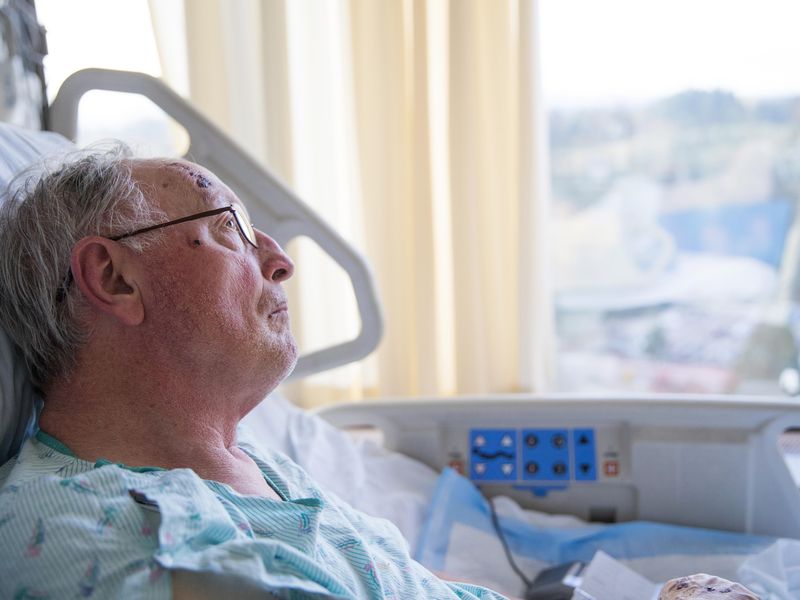Aggressive end-of-life care used more often by nursing home residents than community-dwelling residents aged 66 years or older
By Elana Gotkine HealthDay Reporter
FRIDAY, Feb. 24, 2023 (HealthDay News) — Aggressive end-of-life (EOL) care is commonly used among older patients with metastatic cancer and is used more often by those residing in nursing homes (NHs), according to a study published online Feb. 22 in JAMA Network Open.
Siran M. Koroukian, Ph.D., from the Case Western Reserve University School of Medicine in Cleveland, and colleagues compared markers of aggressive EOL care in a population of 146,329 patients aged 66 years or older with metastatic breast, colorectal, lung, pancreas, or prostate cancer using the Surveillance, Epidemiology, and End Results database linked with the Medicare database and the Minimum Data Set for deaths occurring from Jan. 1, 2013, to Dec. 31, 2017.
The researchers found that compared with community-dwelling residents, NH residents more often had aggressive EOL care (63.6 versus 58.3 percent). The odds of receiving aggressive EOL care, of more than one hospital admission in the last 30 days of life, and of dying in the hospital were increased in association with NH status (adjusted odds ratios, 1.04, 1.06, and 1.61, respectively). Conversely, the odds of receiving cancer-directed treatment, intensive care unit admission, or enrollment in hospice in the last three days of life were lower in association with NH status (adjusted odds ratios, 0.57, 0.82, and 0.89, respectively).
“With higher use of inpatient care associated with the difference in EOL care overall, our findings point to a heavy reliance of NHs on hospital care, even when patients have metastatic cancer and as patients are approaching death,” the authors write.
One author disclosed holding a patent for in-home remote monitoring systems.
Copyright © 2023 HealthDay. All rights reserved.








